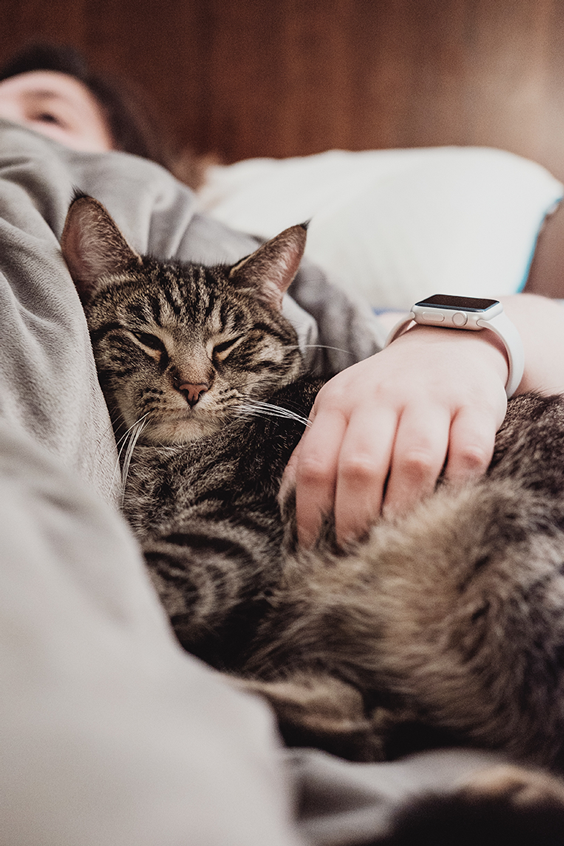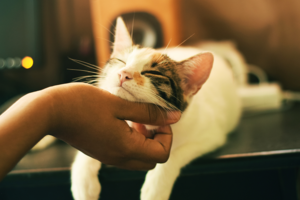If something soft, snugly, and lovingly purry has been missing in your life, it’s probably time to get yourself a cat. However, owning an animal is not like owning a pet rock. With a living creature you have responsibilities, and you’re making a big commitment, possibly for about 15 odd years.
Having a cat can be easier than owning a dog; cats can fit into busy, modern lifestyles as they are pretty independent, can be left alone and are more suitable for smaller flats or houses, but cats still require plenty of attention and support.
Still thinking of getting a cat?
Here are some things to think about before actually bringing that purring ball of fur home.

Is a cat for you?
Who can resist the charm and affection of a purring cat? There’s no doubt about it, cats make great pets. Cats can be incredibly relaxing. Coming home at the end of a tough day to a contented purr from a loving bundle of fur takes a bit of beating.
Studies have shown that pet owners are generally healthier and happier than non-pet owners. Just look at all the advantages of cat-ownership that you can look forward to:
- Owning a cat has been proven to reduce stress.
- Cat owners generally have lower blood pressure than non-pet owners.
- You can benefit from a stronger immune system and recover from illnesses faster than non-pet owners.
- Children growing up with cats generally have fewer days sick than those who don’t have pets.
- Cats are very loving and full of character, but also treasure their own independence, meaning they can be less demanding than other pets.
- Cats can help people recover quicker from emotional traumas, such as bereavement.
- Cats are able to sense our mood and many cat owners claim their cats often try to cheer them up if they are feeling down.
- Cats are more than happy to offer a chin to scratch while you’re lounging on the couch or to keep your lap warm on a cold winter’s night.
But remember that getting a cat is a big responsibility and a lifetime commitment. The average lifespan of a cat is 13 to 17 years, but a lot of cats have been known to live to over 20.
What type of cat?
It’s important to choose your cat carefully to make sure you’re compatible. You might want a senior cat you can cuddle on your lap, or you have a special breed in mind that you’d like to raise from a kitten. Not all cats are the same and how each individual cat behaves will depend on their inherent personality and early experiences.
Should you choose a specific breed or moggie? The majority of domestic short or long-haired cats – moggies – are a random mixture of lots of different cats, which means we have little control over the colour, body shape, coat length or anything else that the kittens can inherit from their parents.
Whether you want a pedigree or a ‘moggie’, and whether you go to a breeder or a rescue requires great consideration. Some rescue cats may have had traumatic experiences and the way a cat acts and responds depends on a combination of its genetic make-up as well as experiences.
And the breed of cat?
Not all cats are the same. Some are loud, some are quiet. Some are so dog-like they need constant attention, while others just want to be left alone. Some cats need to know exactly what’s going to happen when in order to feel relaxed. A cat like that would be quite happy living in a quiet home that has few visitors but would probably be quite stressed living in a home full of kids, other animals and activity. Other cats, however, might thrive on different interactions with lots of people and fit in perfectly well in a busy household.
To find out a little more about breeds and their personalities try PetMD’s Breedopedia and check out the breed that may fit you best. Pedigree breeds can be more interactive and needy of human company than some moggies. This may, however, become a problem for the cat if you are out at work all day and only available to give attention on evenings or weekends.
A girl or a boy?
Some say females can be more loving and males more independent, but you may find yourself with a cuddly mummy’s boy or a self-reliant female. Generally, males are a little bigger than females.
 A cat or a kitten?
A cat or a kitten?
A kitten can be a cheerful addition to a home, but kittens require more nurturing, teaching and regular feeding. A kitten learns most of its socialising skills in the period up to eight weeks old, so adopting a kitten gives you the opportunity to treat it and care for it well so that it gets the best start in life. You will also be able to get some idea of its character. However, kittens require a lot of attention and some forethought to prevent them from getting into trouble.
While kittens have a huge ‘cute’ factor, it is worth remembering that they don’t stay kittens for very long – just six months out of a potential 15 years or more. With adult cats, it will be clear whether they are long or short-haired. You should be able to get a clear idea of a cat’s personality.
Generally, it will be much easier to leave an older cat alone as it is less likely to get itself into trouble, and it will be less work and worry. An adult cat will probably already be neutered and vaccinated.
How much care and attention does a cat need?
Cat overpopulation and stray or feral cats are a huge problem and a threat to our precious wildlife in New Zealand. Cats can breed as often as three times a year and can become pregnant from as young as five months old, meaning that your kitten could soon be having kittens herself. Always spay and neuter your cats. Doing so also ensures that your cat will live a longer and healthier life.
If you’re don’t have the time or inclination to groom a cat on a daily basis, don’t even think of getting a Persian or long-haired cat. A shorthaired cat is a much easier option but will still shed hair.
To care for your cat you will need to:
- Provide plenty of human companionship.
- Provide regular, suitable meals with a constant supply of fresh water.
- Provide a clean and comfortable personal sleeping space.
- Provide a scratching post so they can keep their paws in good condition.
- Provide the cat with outdoor access or be prepared to empty and clean a litter tray on a daily basis.
- Provide it with a stimulating and safe environment.
- Groom it regularly. Long-haired cats require daily grooming.
- Have it neutered between 4 and 6 months old.
- Vaccinate against the major feline diseases regularly.
- Worm regularly and provide treatment for fleas.
- Take the cat to the vet when it shows any sign of illness.
- Make sure you can cover the cost of any veterinary treatment it may need.
What should I do with my cat when I go on holiday?
If you travel for work or go on holidays, you need to consider who is going to look after your cat. If you are only away for a day or two you can ask a neighbour to pop in and feed it and check it is OK. If you are away for more than this you may want to consider a boarding cattery, as many cats may wander looking for company. A good boarding cattery will keep your cat safe and you can relax while you are away.
If you’re looking for a comfortable, safe and secure environment for your cat where you know your cat will be well looked after, call us on 09 299 7415 to ask about the benefits of a cattery. Inspections are welcome between 10.00 am and 4.00 pm each day.
What does it cost to keep a cat?
Owning a cat is rewarding but it can be expensive. In 2015, the NZ Companion Animal Council estimated that caring for a cat costs around $670 a year. Costs include food, veterinary (vet) care and care of your cat while you are travelling. Cats have different diet and nutrition needs at different stages of life and need regular flea and worm treatments.
Questions to ask yourself:
These questions will not only influence whether your home and lifestyle are conducive to having a happy and healthy cat but also what type of cat may be best suited to you.
- Do you have children?
- Do you have other pets in the home and how might they react to the new addition? Introducing a newcomer to can be tricky; it will take time and patience.
- Do you work full time and if so, what will happen to the cat when you’re not in the house?
- Will you be able to adapt your home to make it cat friendly?
- How much do you travel?
- Can you financially support your cat’s needs including pet insurance, food, vet bills and grooming, treatments and boarding?
There are lots of things to think about when it comes to getting a cat or kitten, but all of these are impacted by your own lifestyle and home environment. While there is no guaranteed way to choose the perfect cat for you and your lifestyle, understanding your expectations as well as what makes cats tick will help you bring home a cat that adapts to its new environment and be the pet that you want too. Choose a cat well, you’re in store for a heap of love.
